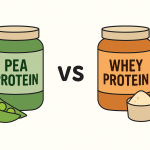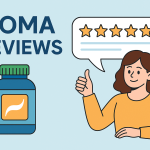Polycystic Ovary Syndrome (PCOS) is a hormonal disorder common among women of reproductive age. It involves irregular or absent ovulation, elevated androgen (male hormone) levels, and enlarged ovaries containing multiple small follicles. Despite its name, having cysts on the ovaries is not universal in PCOS cases. Women with PCOS often experience irregular menstrual cycles, acne, excess hair growth, and difficulty conceiving.
Causes and Risk Factors
The exact cause of PCOS is unknown, but genetics, insulin resistance, and hormonal imbalances play significant roles. PCOS tends to run in families and is often linked with obesity, which exacerbates insulin resistance and androgen levels. Environmental and lifestyle factors also contribute to the condition’s severity.
Who Is Affected?
Around 8-13% of reproductive-aged women globally are affected by PCOS. Many remain undiagnosed due to subtle symptoms or overlap with other conditions. Early diagnosis enables better management and reduces risks of diabetes, heart disease, and infertility.
Nutrition Tips for Managing PCOS
Importance of Balanced Diet and Low GI Foods
Eating regularly and focusing on low glycemic index (GI) carbohydrates helps stabilize blood sugar and insulin levels, critical for managing PCOS. Whole grains, legumes, and fiber-rich fruits and vegetables support insulin sensitivity and hormonal balance.
Foods to Embrace and Avoid
Include lean proteins, healthy fats, and omega-3 sources like oily fish, flaxseeds, and walnuts. These reduce inflammation and support metabolic health. Limit processed foods, sugary snacks, and high GI carbohydrates that spike blood sugar and worsen symptoms.
Role of Omega-3 and Anti-inflammatory Diets
Omega-3 fatty acids have anti-inflammatory effects that can improve symptoms such as acne and insulin resistance. Plant- and marine-based omega-3 sources are both beneficial. An anti-inflammatory dietary pattern supports overall hormonal health and metabolic function.
Best Fitness and Exercise Practices
Benefits of Cardiovascular Exercise
Aerobic exercises like walking, cycling, and swimming improve insulin sensitivity and promote weight management. Just 30 minutes daily can enhance cardiovascular health, reduce PCOS symptoms, and boost mood.
Strength Training and Hormonal Balance
Strength training 2-3 times per week increases muscle mass and metabolic rate, aiding insulin regulation. Resistance exercises targeting major muscle groups also support hormonal balance and energy levels.
Mind-Body Exercises for Stress Reduction
Yoga, Pilates, and tai chi not only burn calories but also lower stress hormones that exacerbate PCOS. Mind-body exercises improve flexibility, mood, and hormonal health, providing a holistic fitness approach.
Preventive Care and Lifestyle Adjustments
Weight Management and Regular Monitoring
Maintaining a healthy weight alleviates many PCOS symptoms and lowers the risk of complications. Regular medical checkups that monitor blood glucose, hormones, and cardiovascular health help track progress and guide treatments.
Sleep, Stress, and Hormonal Health
Adequate restful sleep and stress management are vital for balanced hormones. Chronic stress can increase androgen levels and insulin resistance. Prioritizing sleep hygiene and relaxation techniques mitigates these effects.
Early Detection and Medical Treatment Options
Early diagnosis through symptom awareness enables timely intervention. Treatments may involve hormonal contraceptives, insulin sensitizers, or fertility therapies tailored to individual needs. Lifestyle changes remain foundational for all.
Mental Wellness and Emotional Support
Psychological Impact of PCOS
Women with PCOS face higher rates of depression, anxiety, and body image challenges due to symptoms like weight gain, acne, and hirsutism. These mental health issues significantly affect quality of life and require comprehensive support.
Coping Strategies and Professional Help
Mindfulness, cognitive behavioral therapy (CBT), and counseling improve emotional resilience. Support groups offer shared experiences and reduce feelings of isolation. A holistic approach addressing both physical and psychological needs yields the best outcomes.
Building Resilience and Positive Lifestyle
Developing healthy routines including regular exercise, nutritious eating, and stress reduction nurtures both mind and body. Empowerment through education and self-care fosters confidence and well-being in living with PCOS.
Practical Daily Tips for Living with PCOS
Eat balanced meals with low GI carbohydrates and include protein and healthy fats.
Engage in consistent, enjoyable physical activity combining cardio and strength training.
Prioritize sleep and practice stress management techniques like yoga or meditation.
Track symptoms and triggers to discuss effectively with your healthcare provider.
Seek mental health support when needed and connect with community groups.
Frequently Asked Questions
What causes PCOS?
A combination of genetic, hormonal, and lifestyle factors contribute to PCOS development.Can PCOS be cured?
PCOS has no cure but can be managed effectively with lifestyle changes and medical treatments.How does diet affect PCOS?
A low GI, anti-inflammatory diet stabilizes blood sugar and improves hormonal balance.What exercises are best for PCOS?
Aerobic, strength training, and mind-body exercises offer comprehensive benefits.Is PCOS linked to mental health issues?
Yes, women with PCOS have higher rates of anxiety, depression, and body image concerns.
Conclusion
Polycystic Ovary Syndrome is a common yet complex condition that affects hormonal and metabolic health. Understanding PCOS, adopting a balanced diet, regular exercise, mental wellness strategies, and preventive care are essential for managing symptoms and improving life quality. Early diagnosis and ongoing support empower women to take control of their health journey. For deeper insights, explore related articles on women’s hormonal health, nutrition strategies, and stress management techniques.
Take the first step today—consult a healthcare professional for personalized guidance and join communities dedicated to PCOS awareness and support.








